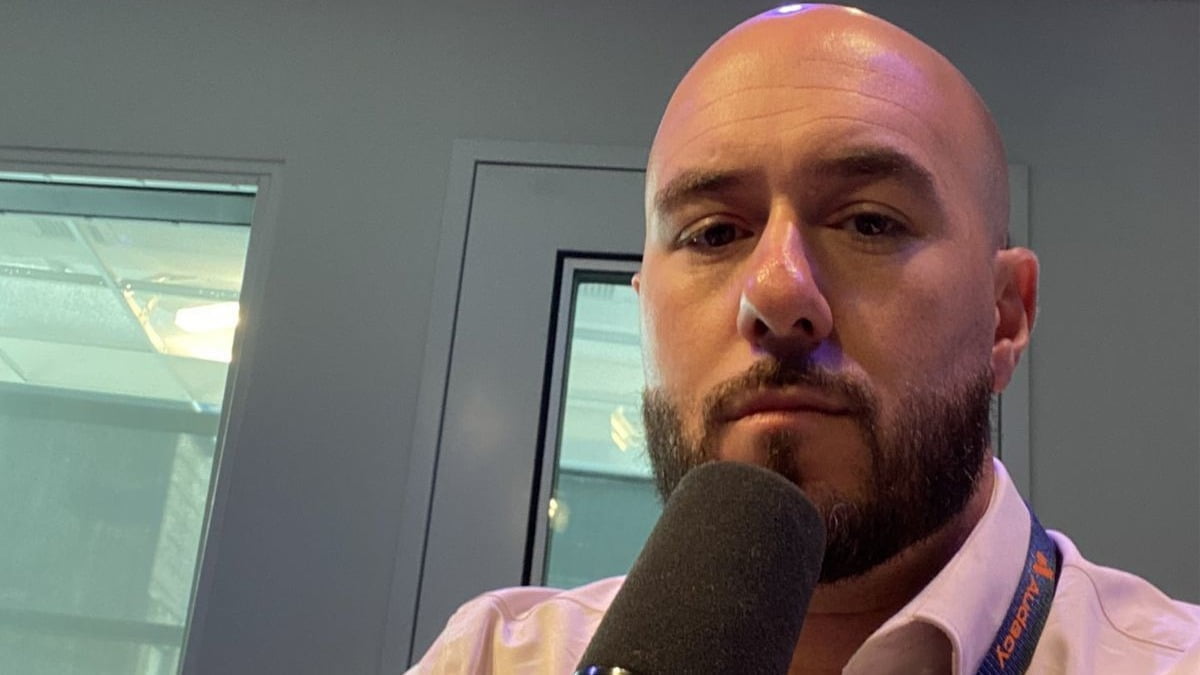Four of the most enjoyable years of my life were spent on Capitol Hill as Communications Director for Congressman Michael R. Turner (R-OH). Mr. Turner is currently the ranking Member of the influential House Armed Services Committee. Should Republicans take back the House in November, he will likely become the committee Chairperson.
When talking to old media friends during that period, I often explained that the job wasn’t that different from broadcasting. The Congressman was like the “morning guy,” and the communications position was similar to the marketing and promotions role.
When Texas and Florida Governors Abbott and DeSantis began sending illegal immigrants, or unregistered persons for the more politically correct, from their states to Democrat strongholds, critics referred to it as a stunt. Neither of the governors seems to mind the term stunt.
Anybody with a radio career longer than one rating book has witnessed a stunt or two. Stunts can be remarkably effective for calling attention to something.
I don’t know if the “Concert for Bangladesh,” the granddaddy of benefit concerts, solved the refugee problem or if “Live-Aid” ended hunger. I am sure that these events, which were stunts when you think about them, created massive attention for important causes.
When we first put Howard Stern on WYSP-Philadelphia, we had no idea what the ratings impact would be. At the time, there was no shortage of critics who said: “it will never work.”
We couldn’t know, with certainty, whether broadcasting a show from New York would work in Philly. We were sure that doing it would get WYSP, a moribund station, a great deal of attention. At worst, it would be a “stunt.” At best, well, that’s in the history books.
Speaking of Howard, I believe Donald Trump, a regular guest on The Stern Show for approximately 20 years, ripped off “The King of All Media’s” 1980s and 90s formula to win the presidency. Think about it:
- He never apologizes – no matter what
- The more outrageous, the better
- He plays to a dominantly male audience who loves and defends him
- He does what he does for his fans
- It’s always “us” against the world
- He picks feuds with others and then sics his fans on the attacked
- The only thing better than the celebrity feuds is staff in-fighting
- His live events are huge love-fests
What else do politicians have in common with broadcasters?
Ronald Reagan was called “The Great Communicator.” Reagan graduated from Eureka College in 1932. Later that year, his public career began as a WOC-AM/Davenport, Iowa sports announcer. He moved to WHO-AM/Des Moines in 1933, where he famously recreated baseball games using ticker tape reports. He went to California to cover spring training for the Cubs, which launched his Hollywood career.
Radio demands storytelling skills: The best in class in politics and radio are great storytellers. What do you know about Abraham Lincoln’s personality? He loved to tell a tale. In the opening minutes of Steven Spielberg’s “Lincoln,” the president (played by Daniel Day-Lewis) tells a couple of free Black soldiers about the travails of barbers who have cut his hair.
In another scene at the War Department telegraph office, Lincoln offers an anecdote about Ethan Allen, prompting an incredulous Secretary of War Edwin Stanton (Bruce McGill) to proclaim: “You’re going to tell a story! I don’t believe that I can bear to listen to another one of your stories right now.”
At his best, Joe Biden tells stories. He has always gotten confused about numbers and details, not unlike Reagan. But he effectively uses stories to make his point. That’s how he became “Scranton Joe” and why we know “Corn Pop was a bad dude.”
Positioning matters: In 1992, realizing that the recession was the top issue on voters’ minds, Bill Clinton’s campaign advisor, James Carville created the positioning statement, “It’s the economy, stupid.” Clinton stayed on message, promising to “focus like a laser beam on the economy.”
In 2008, Barack Obama simplified his positioning to a single word: Hope, to which he added the slogan, “Yes we can!” It brilliantly captured the zeitgeist and catapulted the first-term Senator to the White House.
Focus on a few big ideas at a time: Over the years, radio programmers have learned to focus on a couple of essential things at a time. When Barack Obama took office, he had a lengthy list of items that needed attention. The economy, unemployment, bank bailouts, and U.S. auto manufacturers were in trouble. Fighting continued in Iraq and Afghanistan. Bin Laden was still hiding, and the president wanted to use his popularity to pass healthcare legislation. It was too much for the public to follow, and it appeared nothing positive was happening.
A 55% to 43% margin agreed that “since he’s taken over in the White House, Obama has tried to handle more issues than he should,” in a March 2009 CNN/Opinion Research survey.
Reagan kept his agenda simple. He wanted to make the government smaller and less intrusive. He did that through tax cuts, known as “Reaganomics.” He wanted to win the Cold War by building up the military. Everything else was secondary.
Radio is a personal medium: Air personalities have always gotten out and pressed the flesh. Many figured out early in the game to use social media to build relationships with listeners.
Bill Clinton understood the power of building connections (no pun intended). Remember the first Presidential Town Hall Debate? A voter asked the candidates (Clinton, George H. W. Bush, Ross Perot) a question about how the economy (national debt) affected them personally. Clinton walked to the edge of the stage, as close to the audience as he could. Only Clinton answered in human and non-technical language in what became known as the “I feel your pain” moment.
During the same town hall debate, Bush checked his watch. These two moments pretty much sealed the election for Clinton.
Program to your P1s: In politics, they call it “playing to your base.” Whatever your thoughts about Trump, no president has ever focused so intently on their base.
Biden ran on a “Cume” strategy. He was going to unite everybody. During the Democrat primaries, he may not have been most voters’ first choice, but he was everybody’s second choice. During the general, Biden had broader appeal. According to a Morning Consult exit poll, 44% of Biden voters said their vote was more against Trump than for Biden, compared to 22% of Trump voters who said their ballot was primarily against Joe Biden.
The concepts behind successful radio stations and winning political campaigns are similar. During my four years on Capitol Hill, I used countless lessons learned as a program director. When I returned to radio four years later, the skills I acquired in Washington helped make me a more effective programmer.
With continuing radio “reductions in workforce,” public service provides career options. Because there’s an intersection between radio and politics, the skills are transferable. The work is rewarding, and the experiences are fantastic.
Andy Bloom is president of Andy Bloom Communications. He specializes in media training and political communications. He has programmed legendary stations including WIP, WPHT and WYSP/Philadelphia, KLSX, Los Angeles and WCCO Minneapolis. He was Vice President Programming for Emmis International, Greater Media Inc. and Coleman Research. Andy also served as communications director for Rep. Michael R. Turner, R-Ohio. He can be reached by email at andy@andybloom.com or you can follow him on Twitter @AndyBloomCom.








